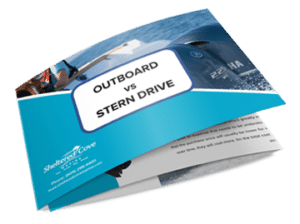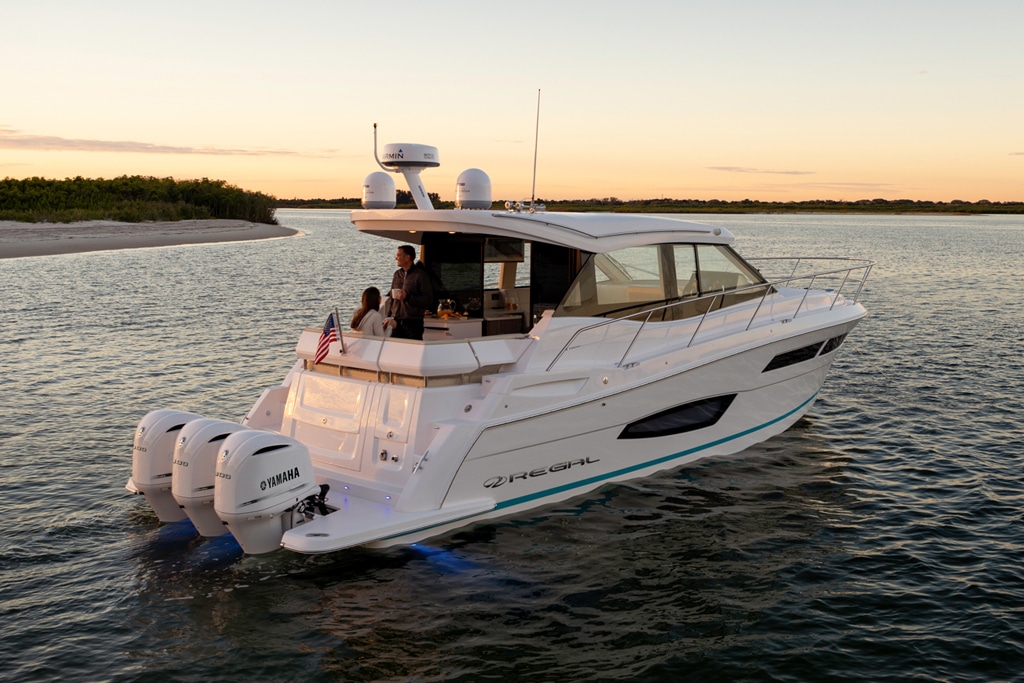Purchasing a boat is not a decision that should be taken lightly. There are many factors involved in not only securing the proper funding, but there are many types, features, and options associated with a boat. One of the most important features of a boat is the engine: size, manufacturer, options, quantity, maintenance, inboard or outboard, etc. For the purpose of this post, we are going to concentrate on outboard motors and how many you really need on your new vessel.
You may wonder to yourself, “How many outboards do I really need on my boat?”, and your first thought might be that it is better to have more than one: faster, stronger, more efficient. However, in theory, that might not be true. In most cases, a single-engine boat will go faster than a multi-engine boat of the same total horsepower because of the additional weight. More weight means the boat is harder to push with the same horsepower, and one engine with one prop creates less drag, which is a speed killer.
BoatTest.com has done independent testing showing that occasionally two 150-horsepower engines seem to slightly outperform one 300-horsepower engine, but it is believed that this is due to the total prop blade area, creating greater lift. However, two smaller engines generally burn more fuel than a single-engine.
Are there advantages of one over the other?
There are pros and cons to the one-vs-two engine discussion: a two-engine boat has better handling, added redundancy (which is especially important for those who travel far offshore), and increased reliability with easier maintenance that two engines. However, a single-engine boat is cheaper, less costly to operate and less expensive to maintain.

Outboard vs Sterndrive
Not sure if an outboard or a sterndrive motor is a better option for you? Download our free guide to learn what exactly the pros and cons are of both types.
Get your free book now!
Redundancy and reliability
Years previously, this was a very serious consideration when deciding on one or two outboards. If you were to fish far offshore and something happens to your single-engine, you could have a serious issue. This led to many purchasing boats with two engines in order to have a backup if one of the engines happened to stop working. Nowadays, with companies like Sea Tow and BoatUS ready on 24-hour standby to tow your boat in this situation, a $300 tow fee is much more economical than the cost of purchasing and maintaining a second engine.
Outboards are also much more reliable than they were in the past. Fuel-injection, anti-vapor lock devices, and digital software have made outboards much more reliable than they ever were in the past. It is usually the software itself that is the most vulnerable part of an outboard engine today. The software is so efficient that it can detect the smallest issue in a critical area, which can cause the engine to halt.
Which choice is best for me?
The single or twin-engine choice really comes down to personal preference and where you like to go on your boat. Most people boat on lakes or close to shore and within VHF range. For them, a failed engine is just an inconvenience and a few hundred dollars, and in the big scheme of things, no big deal. For those going offshore, it is another matter.
Still not sure what the best option is for you? Give us a call at (609) 296-9400 and we can help!
Our award-winning sales staff can help explain the options and what is best for you. The time has never been better to purchase a boat!

